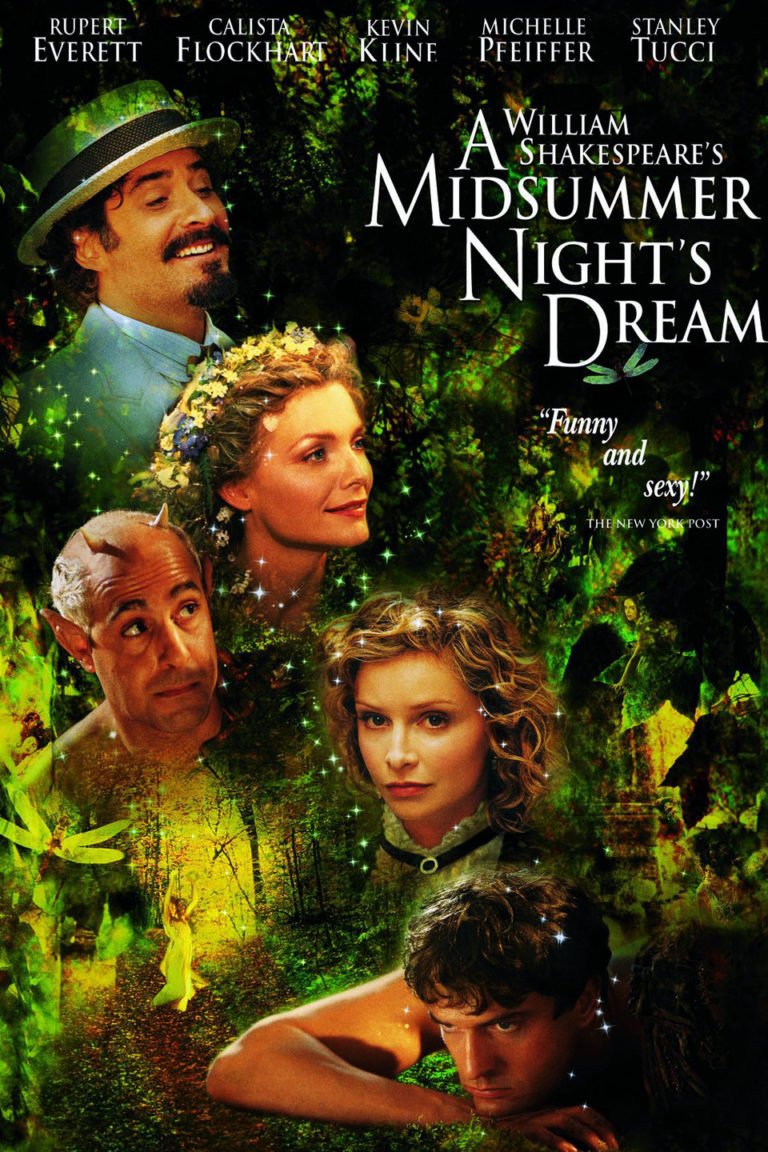
| None | Light | Moderate | Heavy | |
|---|---|---|---|---|
| Language | ||||
| Violence | ||||
| Sex | ||||
| Nudity |
Content:
Strong romantic worldview where love triumphs over all, with a strong pagan element among the fairies who practice magic & a few references to prayer to God; 2 mild obscenities & two times a man is referred to as an “ass”; mild action violence including chases, spills, woman throws women into mud, scuffles, & woman smacks man across face; man grabs woman’s clothed breast, implied adultery between married man & fairy queen & implied fornication between unmarried lovers under a spell; upper male nudity, brief upper female nudity of female fairy, & brief rear male nudity; alcohol use; smoking; and, lying, deception, man urinates off camera, implied continual sensual indulgences by fairies, & a man cross-dresses as a woman for a role in a play.
More Detail:
The story of the play is moved from Elizabethan times to turn of the century Tuscany, where the bicycle is emerging and Victorian attitudes are on the wane. Hermia (British newcomer Anna Friel) wishes to marry Lysander (Dominic West), but both her father Egeus (Bernard Hill) and the Duke Theseus (David Strathairn) want her to marry Demetrius (Christian Bale). Wishing to avoid this fate, Hermia and Lysander escape by bicycle to the forest where they can eventually elope. Demetrius follows in pursuit of his true love and is soon followed by Helena (Calista Flockhart), who is desperate for him. Alas, Demetrius does not return Helena’s affections. Meanwhile, in the forest, fairies drink, carouse and enjoy sensual delights, but not the King of the Fairies, Oberon (Rupert Everett). Oberon is having marital troubles with his spouse Titania (Michelle Pfeiffer), the Queen. Bound for the same woods are a band of amateur thespians led by Bottom the Weaver (Kevin Kline), the ham of hams. They seek a remote location to rehearse their play of love, to be performed before the Duke on the day of his wedding.
Both lovers and thespians alike do not know the fate before them. For Puck, the fairy trickster, administers a powerful love potion that causes the lovers to mix and match with outrageous results. Furthermore, Bottom becomes an Ass (i.e. Donkey) and Titania falls for him in a trick played by Oberon. By righting his wrongs through magic, Puck restores Hermia and Lysander’s love, while leaving Demetrius in an entranced love for Helena. Finally, Bottom and his troop perform before the Duke, resulting in an unexpected but delightful conclusion.
Innocent sounding enough, this version stresses the sensual pleasures of the fairy world, resulting in implied sexual romps for all parties involved. Bottom has a romp with Titania, and the Duke himself discovers Hermia with Lysander, both naked, and Demetrius and Helena, both naked, with a night of carnal knowledge implied. Before all this bawdiness begins, Lysander states his desirous will toward Hermia with a grope.
Skimpy costumes reign throughout this movie, with an occasional female breast peeking out. This modern adaptation never questions the mythical world of the fairies, nor their magic which turns wills and hearts in directions not naturally assumed. Mild morality only rarely surfaces with mentions of prayers to God and Hermia’s initial rebuke of Lysander (but later she gives into his advances). Eventually, the lovers marry, but their forest escapades are the primary focus.
Though preserving the heart and plot of Shakespeare’s original story, this movie primarily is a special effects, Italian photography and Old English showcase. The Shakespearean language of the Bard’s pastoral romance is there, spoken by skilled actors, and even over-spoken (or over acted by some) including Kevin Kline, who is always so good at over-the-top antics. Many women leaving the screening were enthralled by it, but reaction by the men remained mixed.
It seems that these days, Shakespeare adaptations can do no wrong. This movie does wrong not by its filmmaking skills, but by its pagan premise and over-eroticization of its protagonists. It is a garden of fleshly delights.



 - Content:
- Content: 




